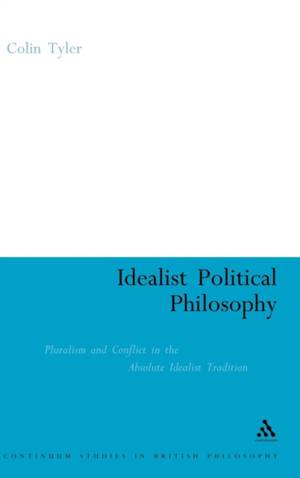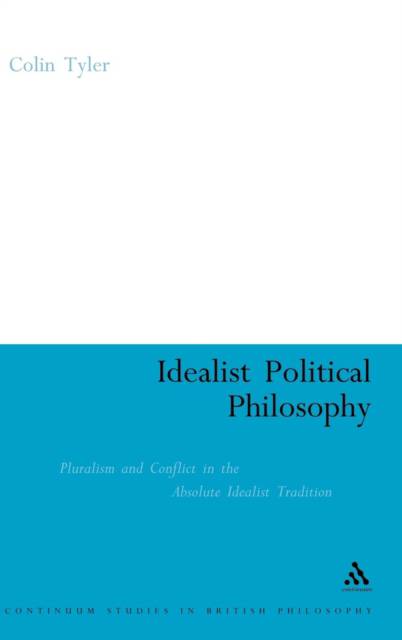
Bedankt voor het vertrouwen het afgelopen jaar! Om jou te bedanken bieden we GRATIS verzending (in België) aan op alles gedurende de hele maand januari.
- Afhalen na 1 uur in een winkel met voorraad
- In januari gratis thuislevering in België
- Ruim aanbod met 7 miljoen producten
Bedankt voor het vertrouwen het afgelopen jaar! Om jou te bedanken bieden we GRATIS verzending (in België) aan op alles gedurende de hele maand januari.
- Afhalen na 1 uur in een winkel met voorraad
- In januari gratis thuislevering in België
- Ruim aanbod met 7 miljoen producten
Zoeken
€ 390,45
+ 780 punten
Omschrijving
Many critics have portrayed absolute idealism as a dangerous, conservative and 'otherworldly' doctrine, an opressing philosophy based on speculative logic rather than empirical realities. In this book, Colin Tyler argues against each of these preconceptions, taking as his focus the philosophies of G.W.F. Hegel, T.H. Green, Edward Caird and Bernard Bosanquet. Tyler argues that Hegel's anlyses of civic pluralism and international order had significant implications for British idealist political philosophy. They led the latter to argue that, rather than spinning a world out of abstract ideas and spurious metaphysical commitments, reformers must work from within concrete historical traditions. Far from sanctifying an abstract logic and metaphysics, these absolute idealists recognised the vital importance of the daily life of politics and political conflict to a degree that escapes most of contemporary liberal political philosophers. Their theory gounded a powerful critique of abstract rationalism as an alientating and potentially totalitarian method of designing social and economic institutions; indicated the inevitabilty of civic and political pluralism and the many opportunities for human improvement which they created; and finally demonstrated the tragic nature of human progress. Indeed, absolute idealism is shown to offer a powerful alternative to the Dworkin, John Rawls, Will Kymlicka, Bhikhu Parekh, Iris Marion Young and Charles Taylor. The book makes extensive use of certain British idealist manuscripts which were not merely unpublished but undiscovered until very recently. Dr Colin Tyler is Lecturer in Political Theory and the University of Hull.
Specificaties
Betrokkenen
- Auteur(s):
- Uitgeverij:
Inhoud
- Aantal bladzijden:
- 232
- Taal:
- Engels
- Reeks:
Eigenschappen
- Productcode (EAN):
- 9780826475404
- Verschijningsdatum:
- 23/06/2006
- Uitvoering:
- Hardcover
- Formaat:
- Genaaid
- Afmetingen:
- 156 mm x 234 mm
- Gewicht:
- 503 g

Alleen bij Standaard Boekhandel
+ 780 punten op je klantenkaart van Standaard Boekhandel
Beoordelingen
We publiceren alleen reviews die voldoen aan de voorwaarden voor reviews. Bekijk onze voorwaarden voor reviews.









